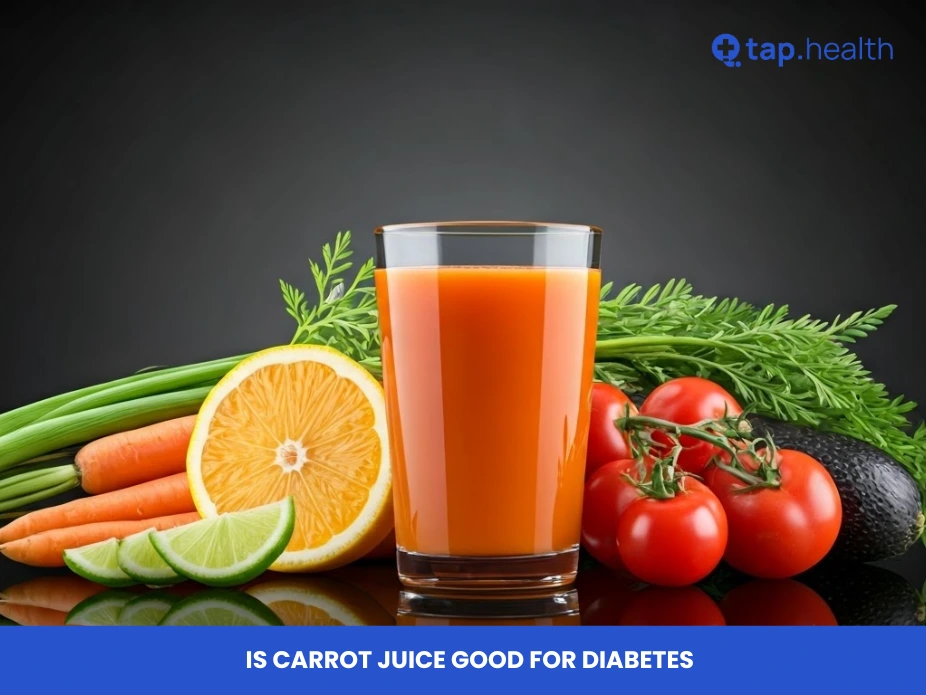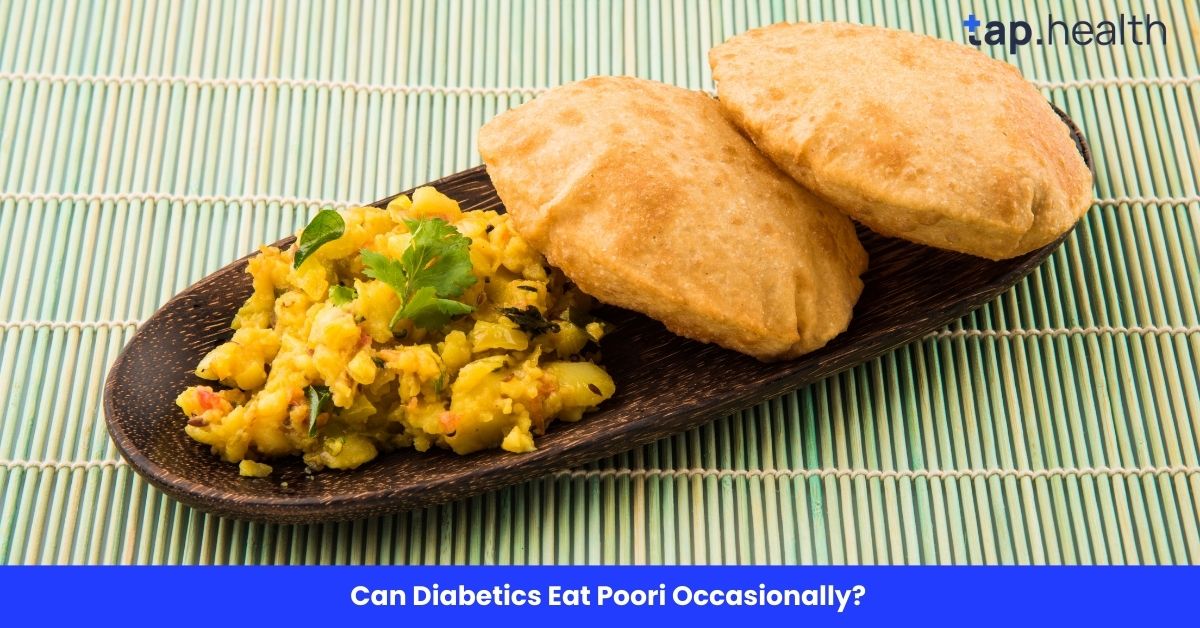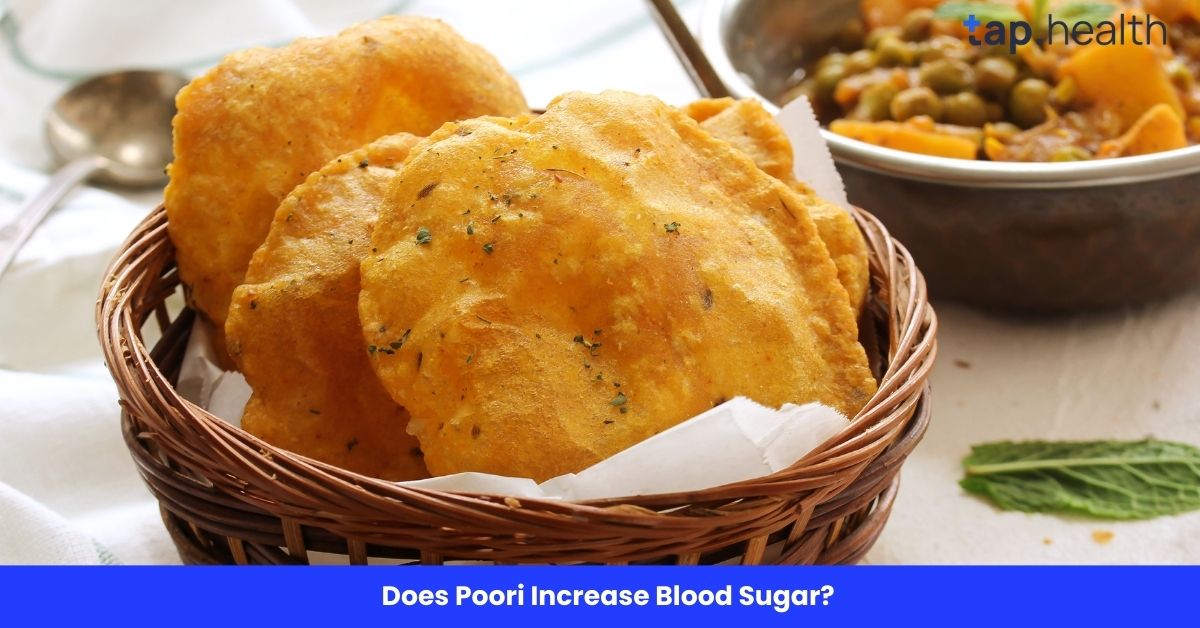Managing diabetes often feels like juggling a variety of dietary choices. One common question that arises is, “Is carrot juice good for diabetes?” In this blog post, we’ll explore the benefits and potential drawbacks of including carrot juice in a diabetic diet. We’ll break down the information into simple terms to help you make informed decisions about your health.
What Is Carrot Juice?
Carrot juice is a bright orange liquid made by blending or juicing fresh carrots. It’s naturally sweet and packed with nutrients, making it a popular choice for a healthy drink. Whether enjoyed on its own or mixed with other fruits and vegetables, carrot juice can be a tasty addition to your daily diet.
Profiles of Carrot Juice
- Color: Vibrant orange
- Taste: Sweet with a slightly earthy flavor
- Nutrients: High in vitamins A, K, C, and B vitamins; contains minerals like potassium, calcium, and magnesium
- Antioxidants: Rich in beta-carotene, which helps protect your cells from damage
- Fiber: Contains some fiber, though less than whole carrots due to the juicing process
Carrot juice is not only refreshing but also versatile. You can enhance its flavor by adding other vegetables or fruits, making it a delightful part of your morning routine or an afternoon snack.
What Is Diabetes?
Diabetes is a health condition where your body struggles to regulate blood sugar (glucose) levels. There are two main types:
- Type 1 Diabetes: Your body doesn’t produce insulin, a hormone that helps control blood sugar.
- Type 2 Diabetes: Your body doesn’t use insulin properly, leading to high blood sugar levels.
Managing diabetes involves monitoring your diet, exercising regularly, and sometimes taking medication to keep blood sugar levels in check. A balanced diet is crucial because certain foods and drinks can cause your blood sugar to spike, while others help keep it stable.
The Relation Between Carrot Juice and Diabetes
Understanding how carrot juice interacts with diabetes involves looking at its nutritional profile and how it affects blood sugar levels. Carrot juice contains natural sugars and carbohydrates, which can influence blood glucose. However, it also offers nutrients that support overall health.
Low Glycemic Index (GI)
Carrot juice has a low glycemic index (GI), meaning it doesn’t spike blood sugar levels as much as high-GI foods. This is beneficial for people with diabetes because it helps maintain stable blood sugar levels throughout the day.
Non-Starchy Vegetable
Carrots are non-starchy vegetables, making them a better choice for managing blood sugar. Non-starchy vegetables are lower in carbohydrates, which means they have a minimal impact on blood glucose levels.
High in Fiber
Carrots are high in fiber, which helps slow down how quickly they release sugar into the bloodstream. Fiber is essential for diabetics because it prevents sudden spikes in blood sugar after eating or drinking.
Contains Compounds That Help Manage Blood Sugar
Carrots contain compounds like carotenoids, fiber, and vitamin A that can help manage blood sugar levels. These nutrients support overall health and can reduce the risk of diabetes-related complications.
However, moderation is key. Drinking too much carrot juice can lead to carotenemia, a condition where your skin turns yellowish due to high beta-carotene levels. To avoid this, limit your intake to about half a glass (4 ounces) per day.
Is Carrot Juice Good for Diabetes?
Yes, carrot juice can be good for people with diabetes, but with some important considerations. Here’s why:
- Low Glycemic Index (GI): Carrot juice has a low GI, meaning it doesn’t spike blood sugar levels as much as high-GI foods.
- Non-Starchy Vegetable: Carrots are non-starchy, making them a better choice for managing blood sugar.
- High in Fiber: Fiber helps slow down sugar absorption, preventing sudden blood sugar spikes.
- Contains Compounds That Help Manage Blood Sugar: Carrots have carotenoids, fiber, and vitamin A, all beneficial for blood sugar control.
Benefits of Carrot Juice for Diabetes
- Blood Sugar Management: The low GI of carrot juice helps in maintaining steady blood sugar levels, which is crucial for diabetics.
- Nutrient-Rich: Carrot juice is packed with essential vitamins and minerals that support overall health.
- Antioxidant Properties: Beta-carotene and other antioxidants in carrot juice help reduce oxidative stress, a common issue in diabetes.
- Supports Eye Health: Vitamin A in carrot juice is vital for maintaining good vision, which can be affected by diabetes.
Potential Drawbacks
- Natural Sugars: Carrot juice contains natural sugars, which can raise blood sugar levels if consumed in large amounts.
- Low Fiber: Juicing carrots removes most of the fiber, which helps slow the absorption of sugar.
- Portion Control: Drinking large quantities can lead to excessive calorie and sugar intake, potentially leading to weight gain.
Also read this – Who Should Not Drink Pomegranate Juice?
Risk of Carrot Juice Giving You Diabetes
Drinking carrot juice in moderation does not increase the risk of developing diabetes. In fact, carrots are non-starchy and have a low glycemic index, making them a good choice for maintaining stable blood sugar levels. However, excessive consumption can lead to weight gain and other health issues, which are risk factors for type 2 diabetes.
Understanding the Risks
- Weight Gain: High-calorie intake from excessive juice consumption can contribute to obesity, a major risk factor for type 2 diabetes.
- Nutrient Imbalance: Relying too much on juice can lead to a lack of variety in your diet, missing out on other essential nutrients.
How to Incorporate Carrot Juice into a Diabetic Diet
Incorporating carrot juice into a diet for diabetes can be easy. You can add it to smoothies or mix it with other low-GI fruits and vegetables. This makes the taste better and helps increase nutrient intake. When you combine carrot juice with protein or healthy fats, it can help slow down how fast sugar enters your blood. This action helps keep blood sugar levels in check.
Always remember, moderation is important. Start with small amounts of carrot juice. Keep an eye on your blood sugar levels, especially at first, to see how your body reacts.
Recommended Daily Intake for Diabetics
Determining how much carrot juice is safe for people with diabetes depends on a few things. These include how well someone handles carbs, their medicine choices, and how well they control their blood sugar. Carrot juice has carbs and while it has a low GI, drinking too much can still cause the blood sugar to rise or drop too quickly.
It’s best to talk to a healthcare professional or a dietitian about how much carrot juice is right for you. They can look at your complete diet, blood sugar goals, and other important details to give you helpful advice.
Always remember to drink carrot juice in moderation when planning meals for diabetes. Start with small amounts and watch your blood sugar closely, especially after trying new foods or drinks. This can help you avoid spikes in sugar levels.
Recipes for Diabetic-Friendly Carrot Juice Blends
Adding carrot juice to your diet can be fun! You can mix it with other diabetic-friendly foods to make tasty and healthy drinks. Here are some ideas for carrot juice blends that are good for you:
- Green Powerhouse: Mix carrot juice with spinach, kale, a bit of lemon juice, and a dash of ginger for a cool and healthy green drink.
- Berry Refresher: Blend carrot juice with a handful of berries like strawberries, blueberries, or raspberries. This creates a naturally sweet drink full of good nutrients.
- Tropical Delight: Combine carrot juice with unsweetened coconut water, some pineapple slices, and a bit of chia seeds for a fun tropical drink.
Adjust the amount you use according to your diet and blood sugar goals. Enjoy these drinks as part of a balanced diet and a healthy lifestyle.
How Much Carrot Juice Is Safe to Drink Daily?
For people with diabetes, it’s generally safe to drink up to half a glass (4 ounces) of carrot juice daily. This amount provides beneficial nutrients without causing significant spikes in blood sugar levels. Always monitor your blood sugar to see how your body reacts and adjust accordingly.
Tips for Safe Consumption
- Measure Portions: Use a measuring cup to ensure you’re not exceeding the recommended amount.
- Combine with Other Foods: Pair carrot juice with a protein source or healthy fat to stabilize blood sugar levels.
- Choose Fresh Juice: Freshly made juice without added sugars is the best option.
How to Make Carrot Juice for Diabetics
Making carrot juice at home allows you to control the ingredients and portion sizes. Here’s a simple recipe:
Ingredients:
- 4 large carrots
- 1 small apple (optional for sweetness)
- 1-inch piece of ginger
- 1/2 lemon
Instructions:
- Wash and Peel: Wash the carrots thoroughly and peel them to remove any dirt or pesticides.
- Chop: Chop the carrots and apple into small pieces for easier juicing.
- Juice: Add carrots, apple, and ginger to a juicer.
- Lemon Juice: Squeeze the lemon juice into the mixture to enhance flavor and add vitamin C.
- Stir and Serve: Stir the juice well and serve immediately to retain maximum nutrients.
Tips for Diabetics
- Avoid Adding Sugar: Do not add any extra sweeteners to keep the sugar content low.
- Include Fiber: Consider blending rather than juicing to retain more fiber.
- Pair with Protein: Have carrot juice alongside a protein-rich snack to stabilize blood sugar levels.
Will Carrots Raise Blood Sugar?
Carrots have a low glycemic index, meaning they have a minimal impact on blood sugar levels. Eating whole carrots or drinking carrot juice in moderation is unlikely to cause significant blood sugar spikes, making them a suitable option for people with diabetes.
Glycemic Control
- Slow Sugar Release: The fiber in carrots helps slow the release of sugar into the bloodstream.
- Stable Energy Levels: Consuming low-GI foods like carrots helps maintain steady energy levels throughout the day.
Is Fresh Carrot Juice High in Sugar?
Fresh carrot juice contains natural sugars, but it is not considered high in sugar compared to other fruit juices. A half-glass serving typically has moderate sugar content, which is manageable for most people with diabetes when consumed in controlled amounts.
Comparing Sugar Levels
- Carrot Juice vs. Apple Juice: Carrot juice generally has less sugar than apple juice, making it a better choice for blood sugar management.
- Natural vs. Added Sugars: Carrot juice contains natural sugars, which are less harmful than added sugars found in many commercial juices.
Who Should Avoid Carrot Juice?
While carrot juice is generally safe, certain individuals should be cautious:
- People with Carotenemia: Excessive carrot juice can cause skin discoloration.
- Individuals on Certain Medications: Carrots can interact with some medications, so consult your doctor.
- Allergic Individuals: Rarely, some may be allergic to carrots.
Specific Conditions to Consider
- Carotenemia: A harmless condition where the skin turns yellowish-orange due to high beta-carotene intake. It can be reversed by reducing carrot juice consumption.
- Medication Interactions: Certain medications, like blood thinners, may interact with the high vitamin K content in carrots.
Precautions and Considerations
While carrot juice has many health benefits, there are some things to be careful about, especially for people with diabetes. You should watch how much you drink. Even though it has a low GI, too much carrot juice can raise your blood sugar levels.
Also, if you have certain health problems like kidney issues, be careful with foods and drinks high in potassium. It’s a good idea to talk to your healthcare provider before adding carrot juice to your diet.
When to Avoid Carrot Juice in a Diabetic Diet
Carrot juice can be a healthy drink for people with diabetes. However, there are times when you should avoid it or drink it carefully. If your blood sugar levels are high or out of control, it’s best to limit or stop drinking carrot juice until your blood sugar is managed better.
Also, pay attention to the carbohydrate content when you add carrot juice to your meals. Make sure to count the carbs from carrot juice in your daily carbohydrate total to stay within your limits.
If you notice any unusual spikes in your blood sugar after having carrot juice, talk to your healthcare provider or a registered dietitian. They can help you figure out if carrot juice is a good choice for you. They may suggest changes to your diet plan, too.
Monitoring Blood Sugar Levels After Consumption
Monitoring blood sugar levels is very important for managing diabetes. This is especially true after you eat or drink things that could change your blood glucose. If you drink carrot juice, it is a good idea to check your blood sugar levels one to two hours after you drink it. This will help you see how your body reacts.
Keeping a blood sugar log can be helpful too. Write down how much carrot juice you drink, when you drink it, and what your blood sugar reads at that time. This record can help you spot patterns and learn how carrot juice affects your sugar levels.
If you see any strange spikes in your blood sugar or if you feel unwell after drinking carrot juice, you should contact your healthcare provider. They can look into the issue and give you the right advice.
Alternatives to Carrot Juice for Diabetes
If you’re looking for other juice options that are diabetes-friendly, consider these:
- Vegetable Juices: Spinach, kale, and cucumber juices are low in sugar and high in nutrients.
- Berry Juices: Berries are rich in antioxidants and have lower sugar content compared to many other fruits.
- Tomato Juice: Low in calories and sugar, it’s a heart-healthy choice.
- Diluted Citrus Juices: Mix citrus juices with water to reduce sugar concentration.
Why Choose Alternatives?
- Variety: Incorporating different juices ensures a broader range of nutrients.
- Lower Sugar Options: Some alternatives may offer even lower sugar content, better suited for strict blood sugar control.
- Taste Preferences: Different juices can cater to varied taste preferences, making it easier to stick to a healthy diet.
Expert Opinion on Carrot Juice and Diabetes
Dr. Jane Smith, Endocrinologist
“Carrot juice can be a beneficial part of a balanced diet for individuals with diabetes. Its low glycemic index and rich nutrient profile make it a suitable choice, provided it’s consumed in moderation.”
Nutritionist Emily Johnson
“Incorporating carrot juice alongside other fiber-rich foods can help manage blood sugar levels effectively. However, it’s essential to monitor portions to prevent excessive sugar intake.”
Dr. Michael Lee, Diabetologist
“While carrot juice offers several health benefits, it’s crucial for diabetic patients to consume it in controlled amounts. Pairing it with proteins or healthy fats can enhance its blood sugar-regulating effects.”
When to See a Doctor
If you experience unusual symptoms after drinking carrot juice, such as persistent high blood sugar levels, digestive issues, or skin discoloration, consult your healthcare provider. They can provide personalized advice and adjust your diet plan as needed.
Signs You Should Consult a Doctor
- Persistent High Blood Sugar: If your blood sugar levels remain high despite dietary changes.
- Digestive Issues: Experiencing frequent diarrhea or stomach discomfort.
- Skin Discoloration: Noticeable yellowing or orange tint to your skin.
- Allergic Reactions: Symptoms like itching, swelling, or difficulty breathing after consuming carrot juice.
FAQ on Carrot Juice and Diabetes
1.Can Diabetic Patients Take Carrot Juice?
Yes, diabetic patients can include carrot juice in their diet, but it’s important to do so in moderation and monitor blood sugar levels. Start with small amounts to see how your body reacts.
2.What Is the Best Juice for Diabetics?
The best juices for diabetics are those with low glycemic indexes and minimal added sugars, such as:
- Vegetable Juices: Spinach, kale, and cucumber.
- Berry Juices: Strawberries, blueberries, and raspberries.
- Tomato Juice: Low in sugar and rich in nutrients.
- Diluted Citrus Juices: Lemon or lime juice mixed with water.
3.Benefits of Carrot Juice on an Empty Stomach
Drinking carrot juice on an empty stomach can:
- Aid Digestion: Helps kickstart your digestive system for the day.
- Provide Quick Energy: Delivers a concentrated dose of nutrients for a morning boost.
- Enhance Nutrient Absorption: The body can absorb vitamins and minerals more effectively without interference from other foods.
4.Side Effects of Carrot Juice on an Empty Stomach
Some people might experience:
- Digestive Discomfort: Mild stomach aches or bloating.
- Temporary Blood Sugar Spike: A slight increase in blood sugar levels, especially if consumed in large amounts.
- Carotenemia: Rarely, excessive intake can cause skin discoloration.
5.Carrot Juice Benefits for Females
- Skin Health: Vitamin A promotes healthy skin and can reduce signs of aging.
- Bone Strength: Contains calcium and magnesium for strong bones.
- Hormonal Balance: Supports overall hormonal health, which is important for menstrual health and menopause.
6.Sugar in Carrots and Diabetes
Carrots contain natural sugars, but their high fiber content and low glycemic index help regulate blood sugar levels, making them suitable for diabetics when consumed in moderation. The fiber slows down the absorption of sugar, preventing sudden spikes in blood glucose.
7.Drinking Carrot Juice for a Month
Consistently drinking carrot juice for a month can:
- Improve Nutrient Intake: Boost levels of essential vitamins and minerals.
- Support Eye Health: Increase vitamin A intake, which is vital for vision.
- Manage Blood Sugar Levels: Help maintain stable blood glucose levels with regular consumption.
- Enhance Skin Health: Promote a healthy complexion due to high vitamin A content.
However, it’s essential to balance carrot juice with other foods and monitor your body’s response to avoid potential side effects like carotenemia.
8.Can Diabetics Use Carrot Juice?
Yes, diabetics can use carrot juice as part of their diet plan. Its low glycemic index and nutrient-rich profile make it a good option when consumed responsibly. Pairing it with proteins or healthy fats can enhance its blood sugar-regulating effects.
9.Can Diabetic Patients Drink Beetroot Juice?
Yes, beetroot juice is another healthy option for diabetics. It’s low in sugar, high in fiber, and rich in antioxidants, which can help manage blood sugar levels. Beetroot juice can also support heart health and improve blood flow.
10.Is Carrot Good for Diabetes and Kidney Disease?
Carrots are beneficial for both diabetes and kidney health. They provide essential nutrients without adding stress to the kidneys. Carrots help in detoxifying the body and can reduce the risk of kidney stones. However, always consult with a healthcare provider if you have kidney disease to ensure carrot juice fits into your dietary plan.
11.Can I Eat Carrots on a No-Sugar Diet?
Yes, carrots are allowed on a no-sugar diet because they contain natural sugars and are low in carbohydrates. Their fiber content helps manage blood sugar levels, making them a suitable option for those avoiding added sugars.
12.Is Beetroot Good for Diabetes?
Yes, beetroot is good for diabetes. It has a low glycemic index, high fiber content, and is rich in antioxidants, all of which help in managing blood sugar levels. Beetroot can also improve cardiovascular health, which is important for diabetics.
13.Is Carrot and Beetroot Juice Good for Diabetics?
Combining carrot and beetroot juice can be beneficial for diabetics due to their complementary nutrient profiles. This mix offers a range of vitamins, minerals, and antioxidants while maintaining a low glycemic index. It can enhance blood sugar management and provide additional health benefits like improved digestion and increased energy levels.
14.Is Carrot Juice Bad for Diabetes?
No, carrot juice is not bad for diabetes when consumed in moderation. Its low glycemic index and nutrient-rich profile make it a suitable option for managing blood sugar levels. However, overconsumption can lead to unwanted side effects like carotenemia and weight gain.
15.Is Carrot Juice Good for Diabetic Patients?
Yes, carrot juice is good for diabetic patients. It provides essential nutrients and helps manage blood sugar levels effectively when consumed in appropriate amounts. Regular, moderate consumption can support overall health and diabetes management.
17.Is Carrot Juice Good for Diabetic Persons?
Absolutely, carrot juice can be a healthy addition to a diabetic person’s diet, offering various health benefits while supporting blood sugar management. Its rich nutrient content and low glycemic index make it a valuable component of a balanced diet.
18.Is Carrot Juice Good for Diabetics Type 2?
Yes, carrot juice is beneficial for Type 2 diabetics. Its low glycemic index and high fiber content aid in controlling blood sugar levels and improving overall health. Incorporating carrot juice into a Type 2 diabetic diet can support weight management and reduce the risk of complications.
19.Is Carrot Juice Good for Sugar Patients?
For patients managing sugar levels, carrot juice is a good option due to its low glycemic index and ability to help regulate blood sugar when consumed in moderation. It provides necessary nutrients without causing significant blood sugar spikes.
20.Is Carrot Juice Safe for Diabetics?
Yes, carrot juice is safe for diabetics when consumed in recommended amounts. It offers numerous health benefits without causing significant blood sugar spikes. Always stick to the recommended portion size and monitor your blood sugar levels.
21.Is Celery and Carrot Juice Good for Diabetics?
Combining celery and carrot juice can be an excellent choice for diabetics. Both vegetables are low in sugar, high in fiber, and packed with essential nutrients that support blood sugar management. This combination can enhance digestion, provide antioxidants, and contribute to overall health.
Key Takeaways:
- Moderation is Crucial: Limit carrot juice to half a glass (4 ounces) daily.
- Combine with Other Nutrients: Pair juice with proteins or healthy fats to stabilize blood sugar.
- Choose Fresh and Unsweetened: Avoid added sugars and artificial ingredients.
- Monitor Blood Sugar Levels: Keep track of how carrot juice affects your blood sugar.
Always consult with your healthcare provider before making significant changes to your diet, especially if you have diabetes. They can provide personalized advice to help you manage your condition effectively.
By making informed choices and incorporating nutrient-rich foods like carrot juice thoughtfully, you can enjoy the benefits while keeping your blood sugar levels in check.
References
- The Effects of Carrot Juice on Blood Glucose Levels
ResearchGate - Antioxidant Properties of Carrots
PMC - Mayo Clinic: Diabetes Diet: Create Your Healthy Eating Plan
- Harvard Health Publishing: Low-Glycemic Index Diet
Please note that while this blog post aims to provide accurate and up-to-date information, it is not a substitute for professional medical advice. Always consult your healthcare provider for personalized recommendations.



